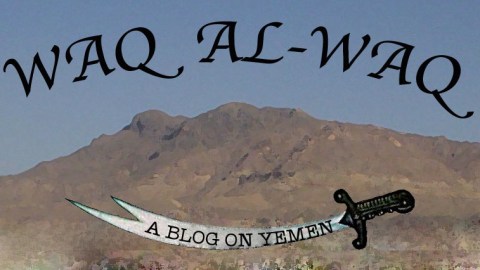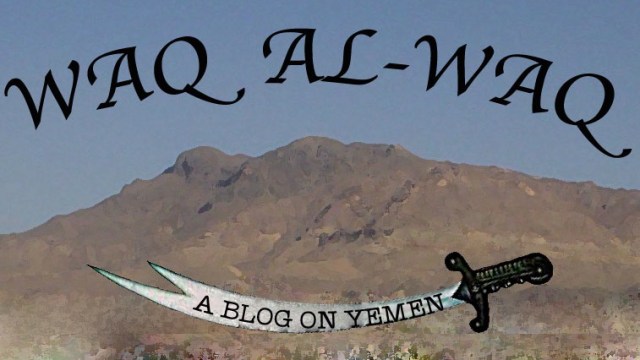Drones and Dangerous Shorthand

This morning Ibrahim Mothana, an incredibly smart and funny young Yemeni, has an op-ed in the New York Times on Drones, Yemen and blowback. I would encourage you all to read it.
The op-ed raises a number of important points and is yet another in a growing number of excellent pieces on the US war in Yemen. I have tried to highlight several articles here at Waq al-waq. I don’t always agree with them, but I have been impressed that as the debate over US involvement in Yemen has grown in recent weeks many smart voices have weighed-in.
As the debate has expanded, however, I’ve noticed a couple of potentially misleading pieces of shorthand.
First, as Jeremy Scahill has nearly shouted himself blue saying, US involvement in Yemen is about much, much more than just drones.
Yes, drones are a part of it, but the US is also using fixed wing aircraft, naval ships, Special Forces, contractors and advisers. As one would except, the technology matters much less to people in Yemen than does the result of the strikes. This may also explain why the shorthand of labeling all US attacks in Yemen as drones strikes is more prevalent in English than it is in Arabic, and why US commentators seem to make this mistake more than AQAP’s pundits.
A couple of things are being confused here. People in the US worried about presidential power, international precedent and a new form of technology that makes fighting simultaneously easier and less risky are grafting those very important questions onto a related, yet different debate, which asks if US strikes (in all forms) are working in Yemen.
This, I think, leads us to a second piece of shorthand that often muddies the debate more than it illuminates. And that is talking about drone strikes and recruitment (I have been as guilty of this as anyone else, probably more so). It seems to me that when people talk about drone strikes (actually all US air strikes) driving recruitment for AQAP, what they actually mean are mistaken air strikes that kill civilians.
If drone or air strikes always worked like they did in November 2002 when the US killed Abu Ali al-Harithi and essentially broke the back of al-Qaeda in Yemen at the time few of those concerned with the question of – are they working in Yemen? – would have a problem.
But drone strikes and air strikes aren’t perfect weapons, as the US’ track record over the past two-and-a-half years shows. It isn’t the drone strikes as such, it is the civilian deaths that result from these strikes that are driving recruitment. (Again, this isn’t the only driver, but it is a major one.)




